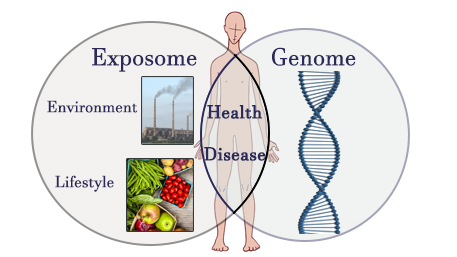Category:
Interplay Between the Exposome and the Genome in Health and Disease

A recent review assessed the interplay between environmental exposures and the human genome and showed ways that this interplay can alter disease risk. Many diseases, such as birth defects and developmental disabilities, type 2 diabetes and cancer, are influenced by both environmental and genetic factors. The cumulative effects of environmental exposures prenatally and throughout life Read More >
Posted on byPopulation Screening for Rare Pathogenic Variants as the Low Hanging Fruit for Public Health Genomics Across the Lifespan

Rapid advances in human genome sequencing technologies have accelerated the integration of genomics into clinical practice. Genomics has demonstrated clinical utility as a diagnostic tool for certain diseases, but its potential for population screening is still work in progress. In principle, DNA-based population screening can identify persons with rare pathogenic variants who are at high Read More >
Posted on by 1 Comment

